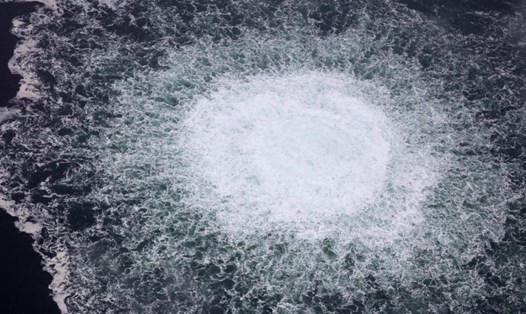Reuters reported that key cables for the rail network were deliberately cut in two places, causing all railway traffic in northern Germany to stall for nearly 3 hours on the morning of October 8. German authorities called it a deliberate sabotage act.
Incident frontman Nancy Faeser said the federal police are investigating the incident. It is still unclear what the motive of the sabotage was.
"This is clearly an act of deliberation and maliciousness," Transport Minister Volker Wissing said at a press conference.
A security source said that many possible causes could occur, from cable theft - which is common - to targeted attacks.
Omid Nouripour, leader of the Green Party, a federal coalition of Chancellor Olaf Scholz, said: anyone who attacks the country's critical infrastructure will face a strong backlash.
The state railway operator said: "Due to the sabotage of cables - an indispensable equipment for railway traffic - Deutsche Bahn had to stop railway traffic in the north for nearly three hours."
Deutsche Bahn has previously blamed the disruption on technical problems with radio communications. Spiegel magazine reported that the communication system stopped working at around 6:40 a.m. (440 GMT). At 11:06, DB tweet said traffic had been restored, but warned of further cancellations and delays.
The disruption has affected rail services through Lower Saxony and Schlewsig-Holstein states as well as the cities of Bremen and Hamburg, directly affecting international railway journeys to Denmark and the Netherlands.
The incident comes a day before the state election in Lower Saxony, where social Democrats under Chancellor Scholz are on track to maintain power and the Greens doubled their share of the vote, according to polls.
The disruption has sounded the alarm after NATO and the European Union (EU) last month emphasized the need to protect critical infrastructure behind what they call the sabotage of the Nord Stream gas pipeline.
The EU has issued a strong warning to anyone trying to attack the energy backbone of the bloc of 27 countries.
" Any intentional disruption to Europe's energy infrastructure is completely unacceptable and will face a strong and unified backlash," the EU Commissioner for Foreign Affairs and Security Deputy Ruben Borrell stressed, reiterating the warning of European Commission President Ursula von der Leyen.
Mr. Borrell said that the EU will strengthen the protection of its energy infrastructure after the incident. We will support any investigation to clarify what happened and why, and take further steps to increase the resilience of energy security, Borrell stressed.






